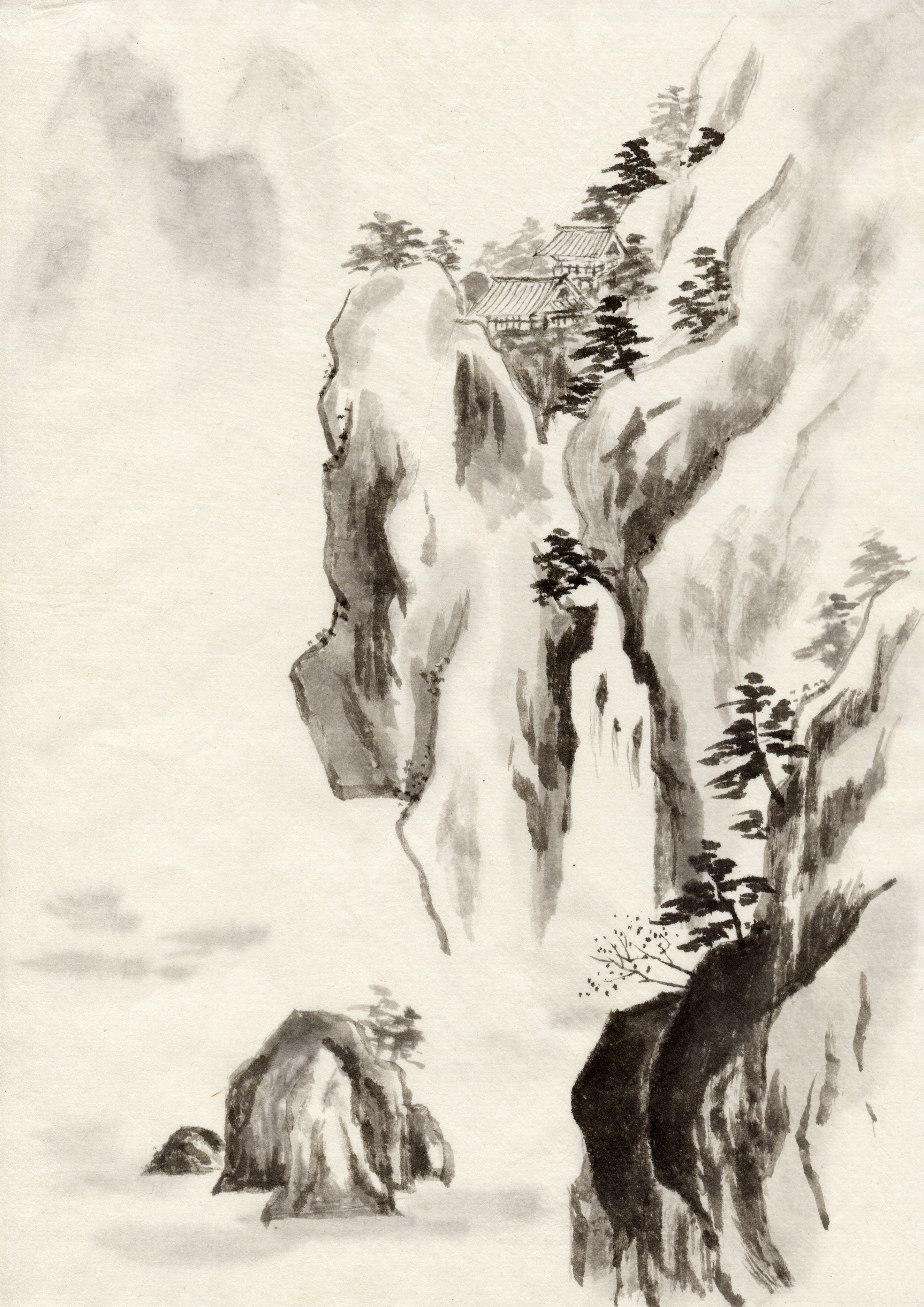A Tale of a Changed Man
Once in a rural region in the north of China, a new mandarin came to administer the district. He was not from the region and was unfamiliar with the customs and troubles of the region. To better know the region, he dressed in the garb of the locals and went incognito amongst them to hear of their troubles. When he was at a table with the elders of one of the villages, they bemoaned the evils which plagued their region. There were two lesser evils, a dragon which caused the rivers to flood and a tiger which frequently killed travelers on the road. These both paled in comparison to the greatest evil, a young man named Dschou Tschu.

Dschou Tschu was a impetuous young man who cared little for the hurt he inflicted on others. He would often put his hand to that which was not his and would get embroiled in numerous conflicts in the villages of the region. What was most fearsome about him for the elders of the village was his exceptional skill with a sword. He had a beautiful blade he carried with him that he knew how to use very well.
Concerned about this young man, the mandarin came to the house of Dschou Tschu one evening after the young man had been out drinking at the local inn. The mandarin met him on the doorstep as he returned and asked the man what he thought were the greatest evils which plagued the district. The young man haughtily replied there were no evils in the district, as every man had food on his table and a contented home.
The mandarin then told the young man that the elders of the very village they were in claimed there were three great evils which plagued all who lived there. Aghast that he knew not of these evils, Dschou pleaded that the mandarin reveal their identity to him so that he could make the village safe for those who lived there.
The mandarin told him of the tiger, which the young man promised to hunt down and kill that very night. He then was told of the dragon which lived in the river, which he agreed to also hunt and kill that same evening. The mandarin then told him that he, Dschou Tschu, was the greatest of all three of these evils for those in the district.
In disbelief that he could have been causing strife for those whom he loved in the village, Dschou said that he too would make amends for the third evil. Setting his face to the east, Dschou set off for the forest where the tiger had been plaguing travelers. Rushing into the forest, he came to the cave where the snowy white tiger lived.

The beast rushed out to meet Dschou, but he was ready and caught the tiger by the scruff of its neck. He pinned the beast to the ground and pummeled the head of the tiger with his free hand until it was dead. He tossed the beast over his shoulder and made for the nearest bridge. Once there, he deposited the tiger on the bank and stripped off his clothes. He took his sword in hand and dove into the water.
He disappeared for several minutes, with puffs of steam and smoke bubbling up out of the water intermittently. At last, Dschou burst forth from the water with the head of the dragon in his hand and the water turning to blood all around him. He waded back to shore and threw the tiger carcass over his shoulder again. With it, the head of the dragon, and his sword, he made his way back to the house of the mandarin.
He came to the house and called for the mandarin to come out. The weary mandarin, who had expected the young man to have gotten himself killed by the tiger or dragon, was surprised to see Dschou on his doorstep. He was even more surprised to see the young man with the dead beasts in each hand.
Dschou dropped them before the mandarin and told him that he had taken care of two of the three evils and was now prepared to rid the third from this district. He said that he would leave immediately and join the army, so that he would never plague his people again and would protect them from any other evils which may befall them.
Turning, Dschou left the village and made for the first fort outside of the district. Once there, he joined the army and served faithfully within it for many years, though he never returned to his district.
In one particularly fierce battle with brigands, Dschou found himself backed up against the border of his home district with no other soldiers left standing to help him defend it. Setting his face to the east, towards his home, he determined that this would be his final act in defense of it.
He fought for many hours, defending against all of those who sought to invade his home. He fought through many painful injuries and through untold exhaustion. Yet, he fought until he had defeated the army which had stood against him. Knowing his time was drawing near, for the number and severity of his injuries was great, he turned one last time towards his home and knew that he had paid his debt to those he loved.
Author's Note
This story is almost exactly the same as the original folktale, with only a few minor changes made to add some detail and depths to characters. In the original story, I found it quite odd that Dschou made such a drastic change so quickly and I had a hard time reconciling that in my version even. To compensate for such an inexplicable and complete character change, I attempted to increase his devotion to his home and his commitment to protecting it. I mainly did this beading the point where he did literally defending his home, while keeping his promise never to return there. In the original, he died a normal death on the battlefield, with no particular devotion to his home or reference again to his self-imposed exile. All in all, I really enjoyed the original tale and sought to do it justice by keeping it as true to the original as possible while adding details which I felt contributed to the story and the characters. Thank you for reading!
Story Source: The Chinese Fairy Book
(Image Source 1: Sunny Art Center)
(Image Source 2: Pixy)

















